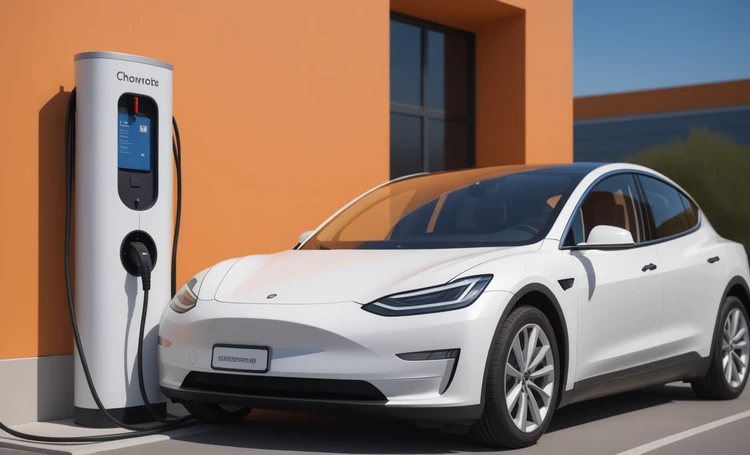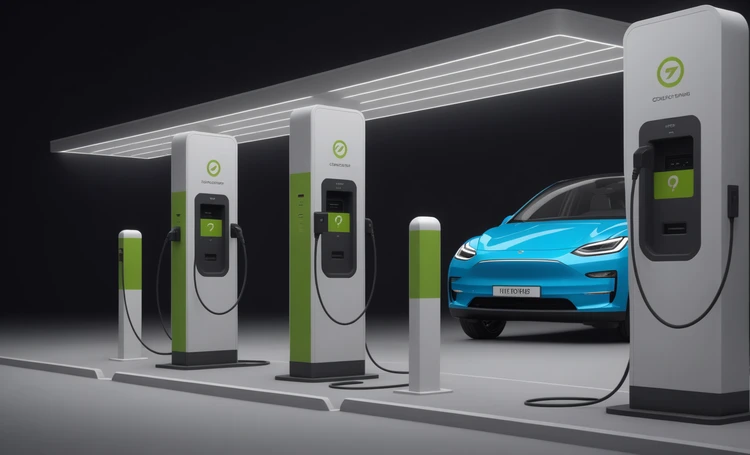🌿 Electric cars and the economy: how they are changing the world
Electric cars are no longer just a trend; they have a real impact on the global economy. Interest in environmentally friendly vehicles is constantly growing, and with it the economic benefits of their use. Let's look at exactly how electric vehicles impact market processes and what they promise for the future of the economy. If you're interested in more details, read more about the economics here.
🔋 Impact on the labor market and innovation
Tech Job Growth
Electric vehicles require new skills and knowledge to build and maintain, leading to the creation of high-tech jobs. Manufacturers such as Tesla are already actively hiring engineers and developers to help drive technological leaps in the automotive industry.
Infrastructure development
The construction of charging stations and maintenance of electric vehicles requires significant investment and creates new jobs in the construction and service sectors. This, in turn, stimulates economic growth in the regions.
Innovations in Battery Technology
Investments in research and development of new types of batteries are drawing attention to the energy technology sector, opening new horizons for investors and researchers.
💼 Economic effect on production chain glasses
Reorientation of the automobile industry
Automakers are rethinking their production chains by investing in electric mobility. Companies such as Volkswagen are actively investing in creating new electric vehicle models and modernizing their factories.
Reducing dependence on oil
As the number of electric vehicles on the road increases, the demand for oil decreases, which could lead to changes in geopolitical and economic relations between countries.
Impact on the energy sector
Growing demand for electricity to charge electric vehicles increases the need to develop and modernize the electrical grid, which also creates new economic opportunities.
🌱 Impact on ecology and economy
Reducing carbon emissions
Electric vehicles help reduce CO2 emissions, which not only has a positive impact on the environment, but can also lead to carbon tax savings in the long run. Countries committed to implementing the Paris Agreement, such as Germany and the United States, see significant economic benefits in this.
Increased investment in green technologies
Encouraging the use of electric vehicles is increasing interest in green investments and promoting the development of clean technologies such as wind and solar power.
Improving the urban environment
Reducing emissions and noise from transport has a positive impact on the quality of life in cities, which can lead to higher property prices and improved public health.
📈 The future of the economy in the light of electromobility
Changing energy consumption patterns
The transition to electric vehicles changes the demand for energy resources, which can stimulate investment in alternative energy sources and increase their share in the energy balance of countries.
New business models
New business models are emerging, such as car sharing and transportation subscriptions, which are transforming the traditional automobile market.
Impact on the insurance market
As the number of electric vehicles increases, insurance companies are reviewing their policies and rates to take into account the lower risk of breakdowns and accidents due to new safety technologies.
Table: Comparative analysis of the economic effect of electric vehicles and traditional cars
| Parameter | Electric cars | Traditional cars |
|---|---|---|
| Ecological footprint | Less | More |
| Maintenance cost | Below | Higher |
| Need for oil | No | Yes |
| Innovation potential | High | Below |
Advantages of electric vehicles:
- Low operating costs
- Reducing your carbon footprint
- High potential for integration with renewable energy sources
- Downward trend in battery prices
Development prospects infrastructure development
With the increase in the number of electric vehicles, states are faced with the challenge of developing charging infrastructure. This paves the way for investment in new technologies and job creation. Countries actively investing in electric mobility infrastructure, such as the United States and European countries, are already seeing positive economic impacts from such investments.
Impact on the energy sector
The transition to electric vehicles is significantly changing the energy market, increasing demand for electricity and reducing dependence on fossil fuels.. This stimulates the development of alternative energy sources and may lead to a decrease in oil prices on the world market.
Creation of new jobs
The development of electric mobility creates new jobs in areas such as battery production, construction of charging stations and development of software for managing electric vehicles, which helps reduce unemployment.
Expected trends
Scaling production
Scaling up the production of electric vehicles and components such as lithium-ion batteries will reduce their costs and make electric vehicles more affordable for consumers.
Strengthening government support
Government incentives and subsidies aimed at supporting electric mobility can accelerate the transition to cleaner transport.
Integration with renewable energy sources
The synergy between electric vehicles and renewable energy sources is becoming increasingly clear, paving the way for the creation of fully sustainable ecosystems.
Impact of electric vehicles on the labor market:
- Growing demand for engineers and IT specialists
- Increasing number of jobs in the production of components for electric vehicles
- The need to retrain workers at traditional automobile factories
Socio-economic effect
Electric vehicles not only help reduce carbon emissions, but also have the potential to significantly transform the socio-economic sphere. From creating new jobs to transforming city infrastructure, electric vehicles open up new opportunities for sustainable development.
Sustainable development and urban infrastructure
The integration of electric vehicles into urban infrastructure is leading to the development of “smart cities”, where transport networks, energy systems and buildings are interconnected and optimized to reduce energy consumption and improve the quality of life of citizens.
Changes in the labor market
Electromobility requires new skills and knowledge, which stimulates changes in the structure of the labor market. Professions related to the development and maintenance of electric vehicles are becoming increasingly in demand, which entails the need for educational programs to train specialists.
Economic growth and investment
Electric vehicles are opening up new avenues for investment, from battery production to software development for driving electric vehicles. This promotes economic growth and innovation.
Table: Comparison of the economic effect of introducing electric vehicles
| Parameter | Before the introduction of electric vehicles | After the introduction of electric vehicles |
|---|---|---|
| Labor market | Predominance of traditional professions | Growth of new specialties |
| Infrastructure | Dependence on gas stations | Development of charging infrastructure |
| Economy | Investments in the oil and gas sector | Investments in clean technologies |
Results
Electric vehicles have a significant impact on the economy and are a catalyst for many changes: from the labor market to urbanization. It is important that governments and businesses actively support this transition, creating the conditions for sustainable development and innovation. Electric cars are not just a means of transportation; they are part of a global economic transformation aimed at creating a clean and efficient future economy.



